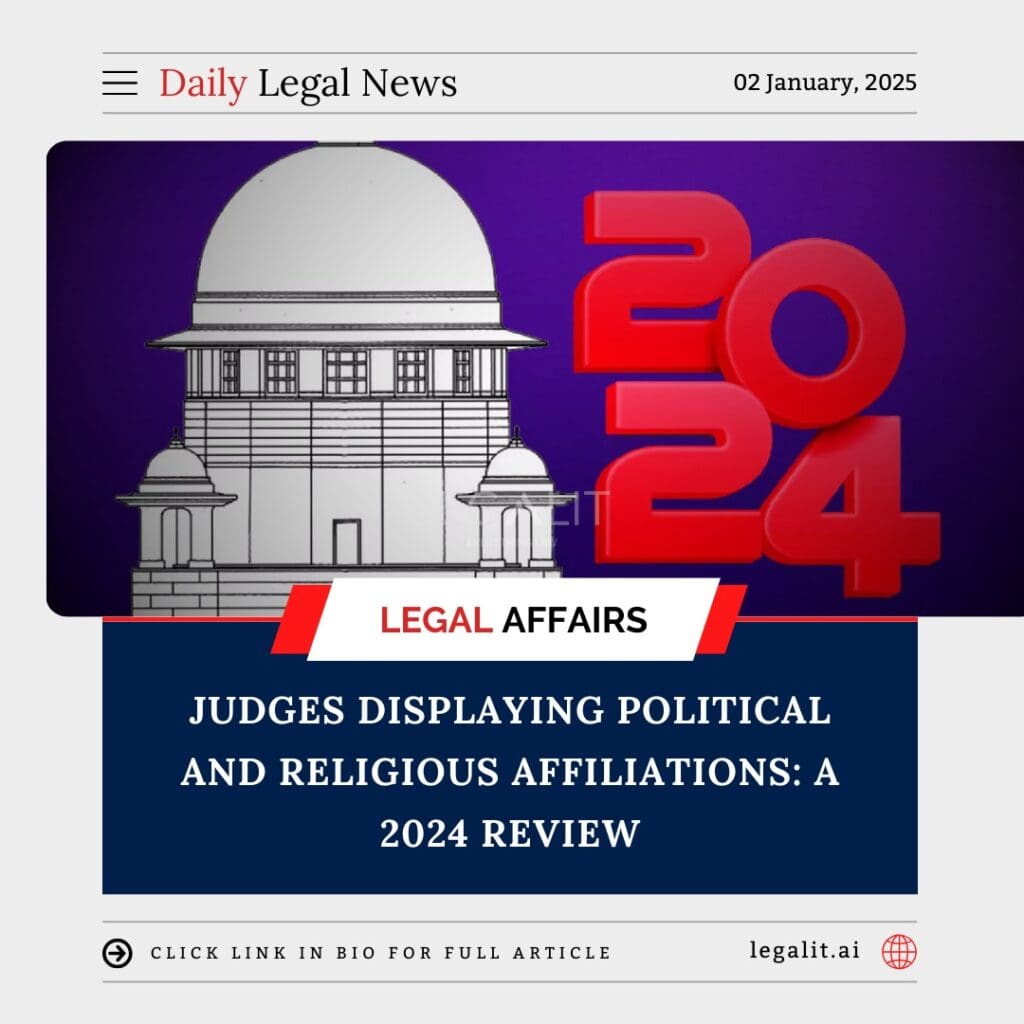
The year 2024 saw several instances where judges, often known for their impartiality, drew attention for remarks or actions hinting at political or religious affiliations. Such instances raised concerns about judicial independence, objectivity, and the sanctity of the judiciary as an institution beyond partisan or sectarian leanings.
Background
Judges occupy a unique position in a democracy, tasked with interpreting the law without prejudice. Judicial impartiality is enshrined in the Indian Constitution, and any deviation risks undermining public trust in the judiciary. However, 2024 witnessed several instances where judicial comments or decisions were perceived as being influenced by personal ideologies, sparking widespread debates.
Notable Incidents
- Religious Undertones in Judgments
Several verdicts or comments from the bench carried overt or subtle religious undertones. In some cases, judges referred to scriptures or invoked religious values, raising eyebrows about the blending of faith and legal reasoning. - Political References
Remarks hinting at political sympathies during hearings or public speeches by judges became a recurring theme. These statements often created a perception of bias, drawing criticism from legal experts and civil society. - Public Speeches and Statements
Judges at various forums occasionally expressed opinions that aligned closely with specific political ideologies. While judges are entitled to personal views, expressing them publicly led to concerns about the judiciary’s perceived neutrality.
Judicial Ethics and Professionalism
The Bangalore Principles of Judicial Conduct emphasize independence, impartiality, and integrity. The Indian judiciary has traditionally upheld these values, but deviations in 2024 prompted calls for stricter adherence to ethical guidelines.
Judges are expected to refrain from political activities or any conduct that may create a perception of bias. However, with the advent of social media and heightened public scrutiny, even off-the-cuff remarks gained significant traction, often leading to controversy.
Public Reaction
- Criticism from Legal Circles:
Lawyers and bar associations frequently voiced concerns about judges overstepping their boundaries by making politically or religiously charged statements. - Public Perception:
The perceived affiliations led to questions about the fairness of judgments in politically sensitive or communal cases, potentially eroding public confidence. - Media Sensationalism:
Instances of alleged bias were often amplified by the media, leading to polarizing debates about judicial conduct and accountability.
Implications
- Erosion of Trust:
Repeated instances of perceived bias threaten the judiciary’s reputation as an impartial arbiter of justice. - Impact on Case Outcomes:
Parties in politically sensitive or religious cases may feel disadvantaged if they believe the bench is predisposed towards a particular ideology. - Call for Reforms:
The controversies reignited discussions about the need for clearer boundaries for judicial conduct, both on and off the bench.
Conclusion
2024 served as a reminder of the critical importance of judicial neutrality in maintaining democracy and the rule of law. While judges are human and possess personal beliefs, the expectation is that such beliefs should never influence their public conduct or judicial decisions. The judiciary must remain steadfast in upholding its role as the impartial guardian of justice, free from political and religious influences.